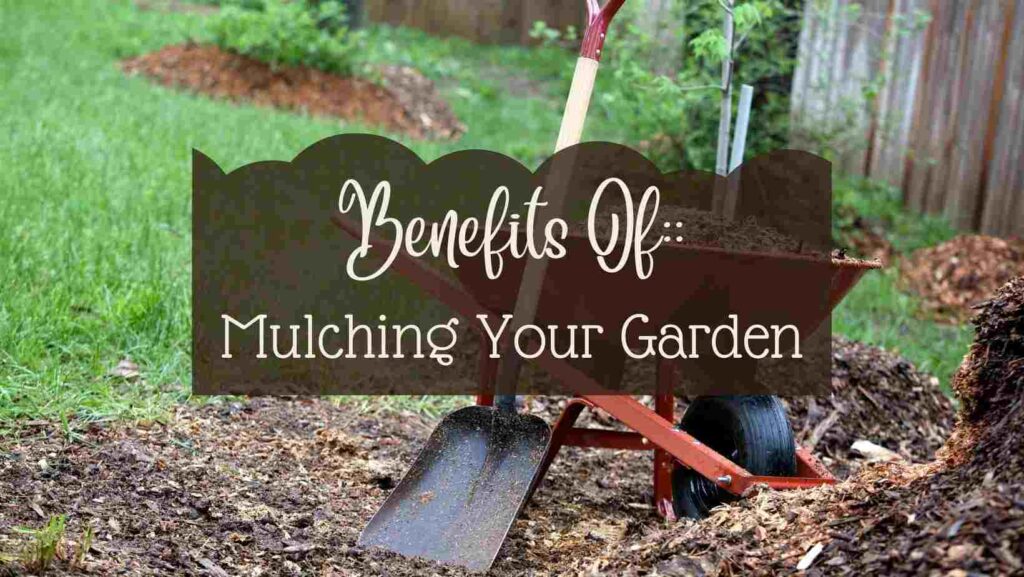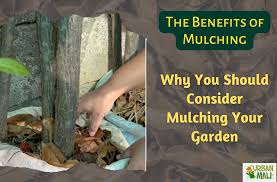Welcome to Liberty Township, where gardens aren’t just patches of green but vibrant expressions of community pride. In this picturesque corner of the world, mulching isn’t just a gardening trend; it’s a secret weapon for every green thumb. Imagine a landscape where healthy soil, lush plants, and minimal weeding coexist – that’s the magic mulching brings to our gardens. In this blog post, Liberty Heritage Nursery Farm unravels the captivating tale of mulching in Liberty Township, exploring how this simple practice transforms our gardens into thriving, sustainable havens. Get ready to discover why mulching isn’t just a choice; it’s a gardening revolution!
Soil Health

At the heart of any successful garden lies the foundation of healthy soil. Mulching plays a crucial role in enhancing soil fertility and structure. Organic mulches, such as shredded leaves, straw, or compost, decompose over time, enriching the soil with essential nutrients. This natural decomposition process not only adds organic matter but also encourages the proliferation of beneficial microorganisms, creating a thriving ecosystem beneath the surface.
In the intricate tapestry of Liberty Township gardens, soil health takes center stage, laying the groundwork for flourishing landscapes. Mulching, a key player in this green symphony, works wonders beneath the surface. By incorporating organic mulches like shredded leaves and compost, the soil becomes a nutrient-rich haven. Microorganisms thrive, fostering a dynamic ecosystem that sustains plant life. It’s not just about dirt; it’s about cultivating a living, breathing foundation for our gardens. In Liberty Township, prioritizing soil health through mulching is the first step towards a garden that doesn’t just survive but truly thrives.
Weed Suppression
One of the perpetual challenges faced by gardeners in Liberty Township is the relentless battle against weeds. Mulching emerges as a formidable ally in this struggle. By forming a protective layer over the soil, mulch acts as a barrier, preventing weed seeds from receiving the sunlight they need to germinate. This not only reduces the frequency of weeding but also minimizes the competition for nutrients between desirable plants and invasive weeds, promoting a more harmonious garden environment.
In the perpetual dance between desirable plants and intrusive weeds in Liberty Township gardens, mulching emerges as a reliable choreographer, orchestrating weed suppression with finesse. As a protective barrier, mulch shields the soil, inhibiting weed seed germination by obstructing sunlight. This not only alleviates the tedious task of constant weeding but also curtails the competition for essential nutrients, allowing chosen plants to flourish. The layers of mulch act as a natural deterrent, discouraging the encroachment of unwelcome plants, and create a visually appealing, low-maintenance garden canvas.
Beyond the practical benefits, mulching for weed suppression embodies a commitment to sustainable gardening in Liberty Township. By reducing the reliance on chemical herbicides, gardeners contribute to a healthier, more balanced ecosystem, creating a space where both plants and humans can coexist harmoniously.
Moisture Retention
Liberty Township experiences diverse weather patterns, from scorching summers to chilly winters. Mulching proves to be a boon in regulating soil moisture levels throughout the year. The protective layer of mulch shields the soil from the drying effects of the sun, reducing water evaporation. During periods of heavy rainfall or irrigation, mulch acts as a sponge, absorbing excess moisture and preventing soil erosion. This moisture retention property is particularly crucial for the sustainability of gardens, ensuring that plants receive a consistent water supply even during dry spells.
In the dynamic climate of Liberty Township, where weather fluctuations are the norm, mulching plays a pivotal role in moisture retention, ensuring a consistent water supply for garden vitality. The protective layer of mulch acts as a natural shield against the sun’s drying effects, reducing water evaporation from the soil. During periods of abundant rainfall or irrigation, mulch functions as a moisture-absorbing sponge, preventing excess water runoff and soil erosion. This dual capability of preserving soil moisture not only sustains plant hydration but also fosters a resilient gardening environment that adapts to the ever-changing weather patterns of Liberty Township.
In Liberty Township, where maintaining soil moisture is essential for thriving gardens, the synergy between moisture retention and professional drainage solution services is unmistakable. Effective drainage solutions ensure that excess water is efficiently channeled away from garden beds, preventing waterlogging and enhancing overall soil health. When combined with strategic mulching practices, these services create a comprehensive approach to moisture management. Expert landscaping services in Liberty Township often integrate both mulching and drainage solutions, offering gardeners a tailored strategy to preserve soil moisture, reduce erosion, and foster an environment where plants can flourish year-round.
Temperature Regulation
In a region with varying temperatures, maintaining an optimal soil temperature is vital for plant health. Mulching serves as a natural insulator, regulating soil temperature by preventing extreme fluctuations. During the sweltering summer months, mulch provides a cooling effect, shielding the soil from excessive heat. Conversely, in the winter, it acts as a blanket, insulating the soil and protecting plant roots from frost. This temperature stability creates a more favorable environment for plant growth, allowing gardeners in Liberty Township to cultivate a wider variety of plants throughout the year.
In Liberty Township’s diverse climate, temperature regulation becomes a crucial aspect of garden management. Mulching, acting as a natural insulator, helps maintain optimal soil temperatures, protecting plants from extreme weather conditions. For a comprehensive approach to both temperature control and landscaping needs, professional landscaping services in Liberty Township often incorporate strategic mulching practices. These services not only enhance the aesthetic appeal of outdoor spaces but also ensure the longevity and health of plants through thoughtful temperature regulation with mulching.
Organic Mulches vs. Inorganic Mulches
When considering mulching options, gardeners in Liberty Township often face the choice between organic and inorganic mulches. Organic mulches, such as bark, straw, or compost, contribute to soil health through decomposition. In contrast, inorganic mulches, like gravel or rubber, offer long-lasting weed suppression and moisture retention without breaking down. The decision between the two depends on the specific needs of the garden, emphasizing the importance of understanding the unique characteristics of each type.
Choosing between organic and inorganic mulches in Liberty Township gardens is a decision rooted in the specific needs of each green oasis. Organic mulches, such as bark or compost, enrich the soil as they decompose, fostering a thriving ecosystem. In contrast, inorganic mulches like gravel provide long-lasting weed suppression and moisture retention without breaking down. While organic mulches contribute to soil health, inorganic options offer durability and low maintenance. Gardeners in Liberty Township often find success in combining both types, creating a harmonious balance that meets the unique requirements of their landscapes.
Selecting the right mulch for your Liberty Township landscape involves a thoughtful consideration of organic and inorganic options. Organic mulches, such as bark or compost, contribute to soil health and support a thriving ecosystem. When paired with the right choice of plants for the local climate, organic mulches create a harmonious environment that fosters growth. On the other hand, inorganic mulches like gravel, when strategically placed, provide durability and complement the selection of plants that thrive in well-drained conditions. The synergy between mulching choices and plant selection ensures a landscape that not only flourishes but also embodies sustainable gardening practices.
Environmental Sustainability

As the awareness of environmental sustainability grows, so does the appreciation for practices that contribute to ecosystem health. Mulching aligns with these principles by promoting sustainable gardening. The use of organic mulches encourages the recycling of green waste, reducing the need for synthetic fertilizers. Additionally, by suppressing weeds naturally, mulching minimizes the reliance on herbicides, fostering a more eco-friendly approach to gardening in Liberty Township.
- Natural Recycling: Mulching with organic materials encourages the recycling of green waste, reducing the need for synthetic fertilizers.
- Reduced Herbicide Dependency: Suppressing weeds naturally minimizes reliance on herbicides, fostering a more eco-friendly gardening approach.
- Biodiversity Support: Mulching supports a diverse ecosystem beneath the surface, promoting the growth of beneficial microorganisms.
- Water Conservation: Mulch aids in moisture retention, reducing water evaporation and promoting efficient water use.
- Minimal Environmental Impact: Organic mulches decompose naturally, leaving minimal environmental footprint compared to synthetic alternatives.
- Sustainable Gardening: The use of mulch aligns with principles of sustainability, creating gardens that are both beautiful and environmentally responsible in Liberty Township.
FAQs
What is the important function of mulching?
Mulching could potentially serve the purpose by reducing soil evaporation, conserving moisture, controlling soil temperature, reducing weed growth, and improving microbial activities.
What are the points of mulching?
Besides keeping the moisture in the soil, mulches can also enhance soil temperature; reduce the spread of soil borne diseases; reduce weed growth; reduce soil erosion (see also soil degradation); and provide nutrients and organic matter ( see also soil amendment and soil cover and reforestation).
What is the main benefit of mulching?
Mulch will reduce the amount of water that evaporates from your soil, greatly reducing your need to water your plants. by breaking up clay and allowing better water and air movement through the soil. Mulch provides nutrients to sandy soil and improves its ability to hold water.
Why is organic mulching important?
They are used to keep weeds from growing in your garden or landscape. They also help retain moisture in the soil and keep the soil temperature even, which helps plants grow better. The mulch also prevents soil erosion during heavy rains and minimizes evaporation during dry periods of the year.
What is the most popular mulch?
Shredded bark is one of the most common and least expensive types of mulch. It comes from a variety of sources, including cedar trees. Shredded bark is the best mulch for slopes, breaking down relatively slowly.
Conclusion
In the vibrant tapestry of Liberty Township gardens, mulching emerges not just as a horticultural practice but as a cornerstone of sustainable and thriving landscapes. As we conclude our exploration into the importance of mulching, it’s evident that this simple yet powerful technique transcends aesthetics. It encapsulates a commitment to soil health, weed suppression, moisture retention, temperature regulation, and environmental sustainability. In the nurturing hands of Liberty Township gardeners, mulching becomes a transformative force, shaping gardens into resilient havens that mirror the community’s passion for green living. Embrace the mulching revolution, and let your garden bloom with vitality and beauty.
